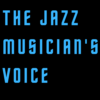The Jazz Musician’s Voice
by Dan Lehner writer for AllAboutJazz.com
The late, great Mulgrew Miller, who was a peaceful man of few qualms, did occasionally take a small amount of umbrage with the way jazz was covered. He was concerned that many jazz publications focused on what he referred to as “interview music”, referring to newer-sounding, more non-traditional approaches to jazz/improvised music. The truth in this is not insinuating that any kind of jazz didn’t deserve coverage, but rather that jazz rooted in tradition – swinging, blues oriented, standards based, etc. – is remarkably harder for journalists to talk about. “Modern” music has an angle; digging into the tradition does not. Thus, the person interviewing a musician like Mike LeDonne or Mulgrew Miller needs to know the ins and outs of the music and see past a certain veneer of obviousness. Luckily, Jonah Jonathan has just this capacity.
Jonathan is a musician himself (and an adept one at that) and it comes through in his interviews. That’s not to say he asks a lot of technical questions or asks things that non-musicians wouldn’t understand, but he asks questions that resonate a certain level of deeper communication that brings out answers that many journalists would never find themselves dealing with. As a (relatively) young musician, he digs into the early careers of musicians, probing their experience and also inquires what they feel about the scene now. This is not uncommon for jazz journalism, but Jonathan does it with a certain sense of urgency, knowing that its his future as well. As a bassist, he’s interviewed some well-known bass legends like Ron Carter, but also some lesser-sung bass masters like Alex Layne and Marcus McLaurine, who, as it turns out, have as storied a history as anyone who makes the top marquee.
Jonathan’s videos are simple and DIY. They’re often conducted in informal spaces, like the basements or green-rooms of clubs, which often means the musician is more relaxed and speaks as though they were just rapping with a bandmate. The style is not totally naturalistic, as the camera is placed on the interviewee for the entire interview, but it does allow the audience to get a fuller idea of the musician’s intent through non-verbal communication. Most of his interviewees behaved relaxed and personably, not overly formal or visibly nervous in the way that most of the more “established” media forms tend to present interviewed artists.
The Jazz Musician’s voice, despite being a more visible context for so-called “straight-ahead” musicians, is not picky or dogmatic with its guests. Jonathan has covered many underrated legends of the swinging variety – Russell Malone, Bill Lee, Harold Mabern, to name a few – but he’s also sat down with the likes of David Gilmore, Kevin Norton, Ari Hoenig and David Binney. Beyond the scope of performers, Jonathan has also talked shop with important people in the world of journalist like DJ and historian Phil Schaap, Downbeat Magazine’s Frank Alkyer and Smalls Jazz Club founder Mitch Borden. In short, Jonathan’s series is a voluminous and rewarding series for the world of jazz.
